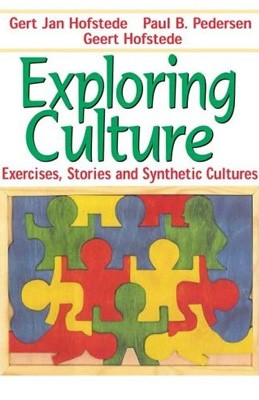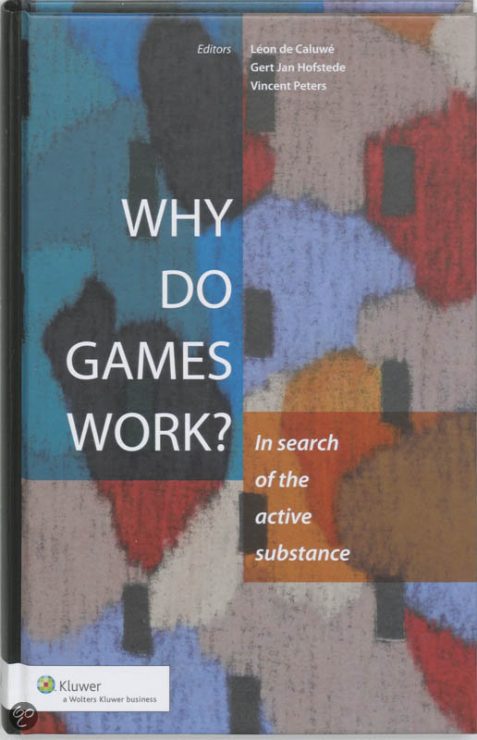Simulation games
Nothing could yield more serious learning than a simulation game. People do not just learn through books. Most people in the world hardly ever read books, yet they learn how to be good members of their societies. They learn by imitation and by engagement. This natural condition of learning is what simulation games try to reproduce.
Gert Jan has worked extensively with simulation games. Here are two of his books.
Synthetic Cultures
 In Exploring Culture, Gert Jan offers a treasure trove of materials for cross-cultural learning. They can be used in schools or companies or in any context where cross-cultural communication occurs. The major contribution is Synthetic Cultures, a set of scripts for each dimension based on an idea by Paul Pedersen. The book also contains stories and exercises, all with debriefing information. Any trainer can adapt Synthetic Cultures to their own context. See also our books.
In Exploring Culture, Gert Jan offers a treasure trove of materials for cross-cultural learning. They can be used in schools or companies or in any context where cross-cultural communication occurs. The major contribution is Synthetic Cultures, a set of scripts for each dimension based on an idea by Paul Pedersen. The book also contains stories and exercises, all with debriefing information. Any trainer can adapt Synthetic Cultures to their own context. See also our books.
Why do games work?
 In this book, we made twenty practitioners of simulation gaming dump their brains on what makes simulation games work. Bibliographic data
In this book, we made twenty practitioners of simulation gaming dump their brains on what makes simulation games work. Bibliographic data
We wrote an article summarizing the book:
Gert Jan Hofstede, Léon de Caluwé, and Vincent Peters (2010) "Why Simulation Games Work—In Search of the Active Substance: A Synthesis". Simulation & Gaming 41(6) 824–843. DOI: 10.1177/1046878110375596
Games: less is more
Deep cross-cultural issues can be uncovered by extremely simple games. Staging an encounter in a narrow passage, getting stuck in an elevator together: these things can give enough material for hours of debriefing. Of course in games, culture is never the only thing. Personalities, experiences, prejudices and other variables at individual level enter the scene. Debriefing is crucial.